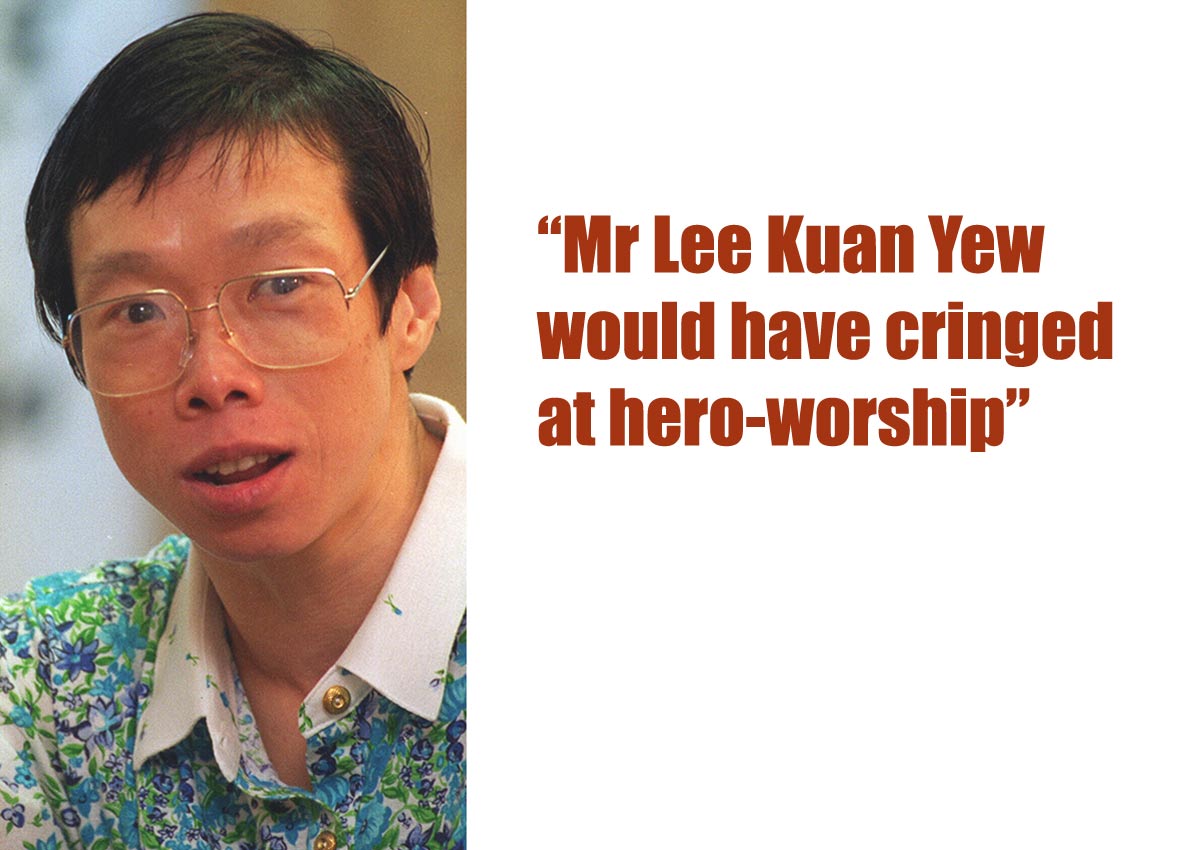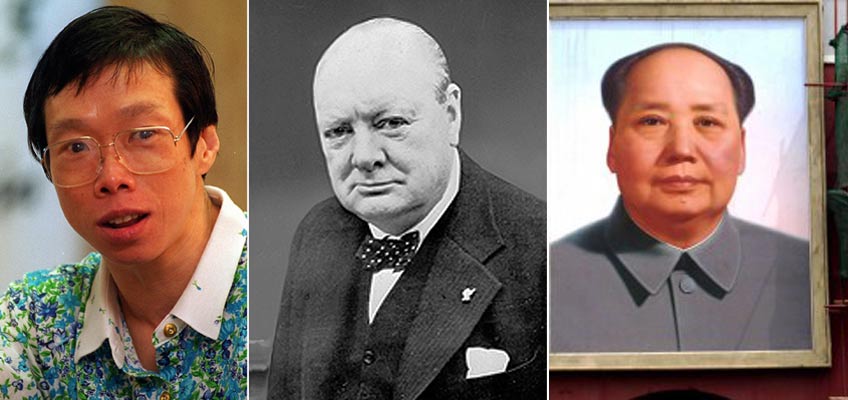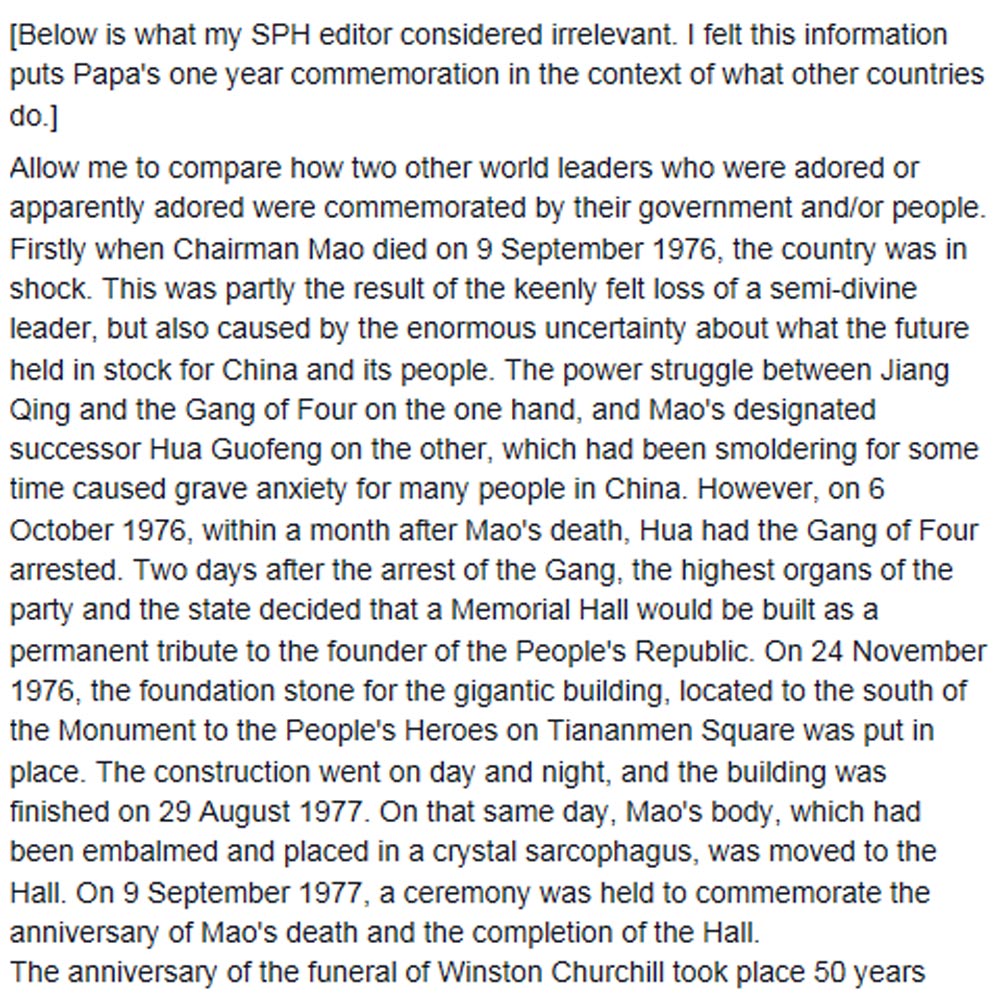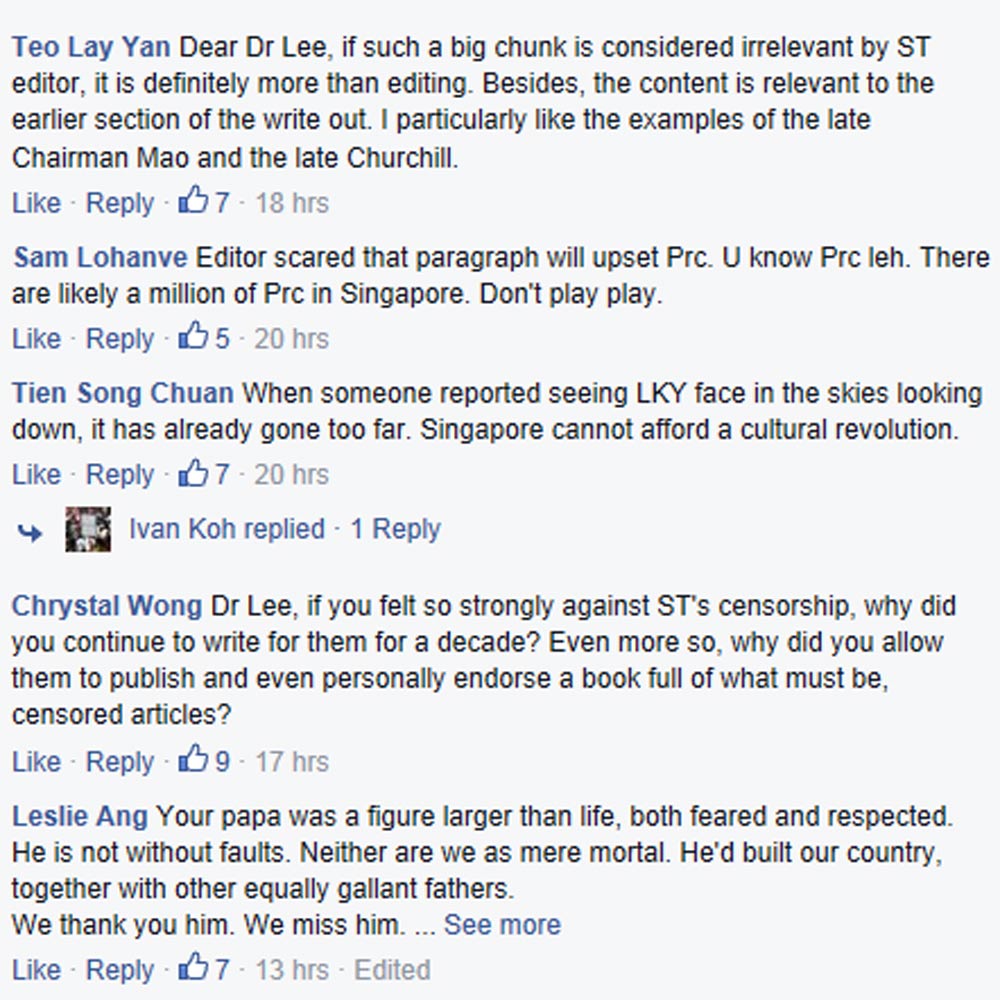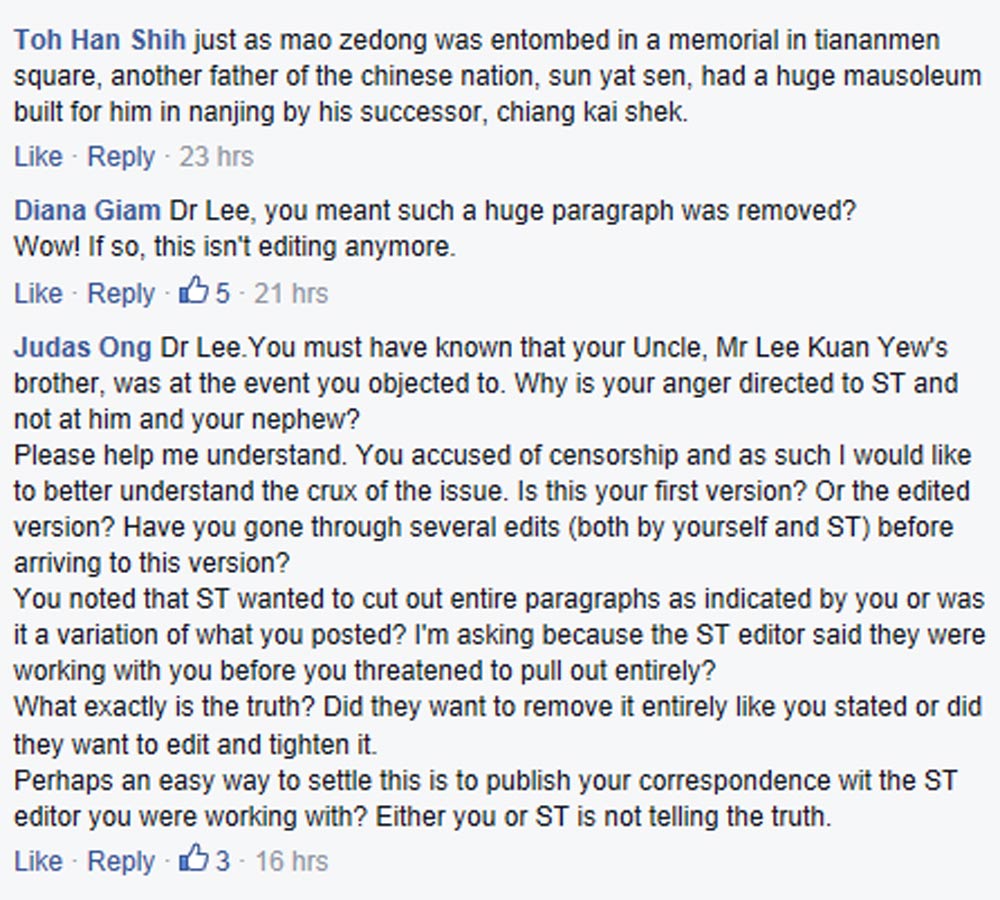Churchill and Mao might have caused the rift between The Straits Times (ST) and its popular column contributor, Dr Lee Wee Ling.
Dr Lee revealed on her Facebook page yesterday the contentious part of her article, that mentioned the death commemorations of the two legendary world leaders, and which ST editors said were “irrelevant”, according to her.
She had produced her article in full earlier on Facebook on March 25 without making any comment.
The saga started when Dr Lee shocked readers when she announced on April 1 that she would stop writing for the English daily of Singapore Press Holdings, after many years in a “love hate” relationship with the newspaper.
The tipping point finally came in March when the editors refused to publish in full her article on why her father, former Singapore prime minister Lee Kuan Yew, would have cringed at hero-worship by Singaporeans marking his first death anniversary with week-long events.
But she argued that the chunk that the editors wanted removed would have helped drive home her point that Mr Lee, who died in March last year (2015) would be unhappy if he were to be turned into a personality cult after his death. She had explained this in the context of how two foreign countries have remembered their late leaders.
In the disputable part, which contained more than a dozen sentences, Dr Lee highlighted the vastly different ways the two nearly-forgotten world leaders of the war and post-war eras, Prime Minister Winston Churchill of Britain and Chairman Mao Zedong of China, were honoured after their deaths.
She wrote that the body of Chairman Mao, who died on Sept 9 in 1976, was embalmed and placed in a crystal sarcophagus. It was then housed in a memorial hall built as permanent tribute to him in Aug 1977.
The commemoration of Sir Winston Churchill’s death saw a different picture, Dr Lee pointed out.
“The anniversary of his funeral took place 50 years after the actual funeral on 30 January 1965…marked by scores of events, including a service and wreath laying at the Houses of Parliament, a memorial service at Westminster Abbey, and the rebroadcast by BBC Parliament of the original live coverage,” she wrote.
She recalled what the current Prime Minister David Cameron had said in his tribute to Churchill: “Half a century after his death, Winston Churchill’s legacy continues to inspire not only the nation whose liberty he saved, but the entire world. His words and his actions reverberate through our national life today.”
Dr Lee continued in her article: “Compare the actual time from death to the first commemoration, and the different activities involved in the commemoration for the two leaders above. Which one would Papa wish his commemoration to resemble. Also bear in mind, that unlike almost all leaders, Papa was dead set against a personality cult and any hint of cronyism.
“If he was forced to choose one form of commemoration, Papa would have objected less if the commemoration resembled that held for Winston Churchill. Do note that Churchill, unlike Papa, cherished glory and a place in the history of his country.
“Compare what Churchill’s commemoration which was conducted 50 years after his death with the activities that have been taking place in Singapore that will continue for an entire week. I think Papa would have objected if he were able to convey his view.”
Rushing to her defence, one of her Facebook fans insisted that the examples of Mao and Churchill were relevant to the point of her article.
“If such a big chunk is considered irrelevant by ST editor, it is definitely more than editing,” said Teo Lay Yan.
After Dr Lee accused ST editors of curbing her “freedom of speech” in her Facebook post on April 1, fans had urged her to continue writing by posting her articles on Facebook.
ST and a former associate editor, Janadas Devan, who had edited her writing, had countered her allegations, saying that the issue was not about freedom of expression but rather a case of editing to uphold journalistic standards.
ST issued a statement on its Forum page to explain why her demand that her latest article be published unedited was “simply not acceptable”.
It said: “All professional newspapers require their writers to work with an editor, who gives a range of inputs on grammar, language, taste, relevance, coherence, judgment and the law. This is not an issue of freedom of expression, but a matter of upholding standards. This applies to all columnists, including Dr Lee, who has often written about not expecting or accepting special treatment.”
Mr Devan, who had Facebook exchanges with Dr Lee, had said reading her unedited writings was like “sailing through a fog”.
But he had good things to say too: “The effort of turning her raw material into coherent articles – that’s what I remember most about editing Wei Ling. That effort was often worth it because she had something valuable to offer, as her many fans can attest.”
chenj@sph.com.sg
